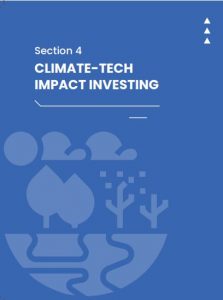12,Oct,2023
Using Climate Tech for Achieving Net Zero & Resilience- by Sanchayan Chakraborty and Santosh Singh in ” Impact Investing Handbook 2022″

Using Climate Tech for Achieving Net Zero & Resilience- by Sanchayan Chakraborty and Santosh Singh in ” Impact Investing Handbook 2022″




